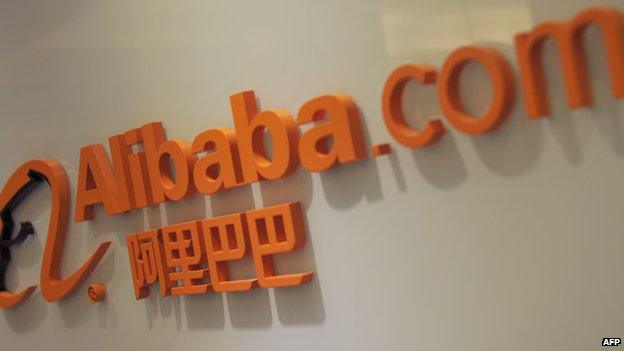China's Alibaba spent $160m fighting fake goods
- Published

Alibaba says costumer complaints on fakes have fallen by 22% from last year
Chinese e-commerce giant Alibaba says it has spent more than $160m (Ā£103m) fighting fake goods on its websites from the beginning of 2013 to November of this year.
The company will add another 200 people next year to the 2,000 workers tackling counterfeit goods on its sites.
That is in addition to the 5,400 volunteers who are already involved in its daily online surveillance plan.
The prevalence of fake goods in China is still a big problem.
Before its record-setting $25bn listing in New York, the world's largest e-commerce company had said in its IPO prospectus that counterfeits goods could hurt its ability to win customers, investors and US retail partners.
In comparison, US e-commerce site eBay said in a court filing in 2010 that it spends up to $20m a year on "buyer protection programs" such as reimbursing buyers for fake goods bought on its site.
'Serious' battle
"We bear a serious responsibility in this fight against counterfeits," said Jonathan Lu, chief executive of Alibaba Group in a .
"Jack Ma [company's chairman] said yesterday - if e-commerce does well in China, that may have little to do with Alibaba Group, but if counterfeits in society are not tackled effectively, it has a lot to do with Alibaba Group."
The tech giant's retail businesses were listed on the US Trade Representatives list of "notorious markets" for intellectual property (IP) infringement until 2012.
China and Hong Kong accounted for 93% of the value of IP-infringing goods seized by US customs in the 2013 fiscal year, according to a government report.
While Alibaba has been aggressive in its push to remove knock-offs from its sites, the mission has been an uphill battle.
Last month, when the company's annual Singles' Day saw over $9bn in sales, the official State Administration of Industry and Commerce (SAIC) conducted an investigation on counterfeits sold that day.
It said more than 10% of the goods that it bought online from retailers were fake or highly suspicious.
Alibaba said it had co-operated with Chinese authorities in over 1,000 counterfeiting cases just this year.
- Published11 November 2014
- Published14 November 2014
- Published22 September 2014